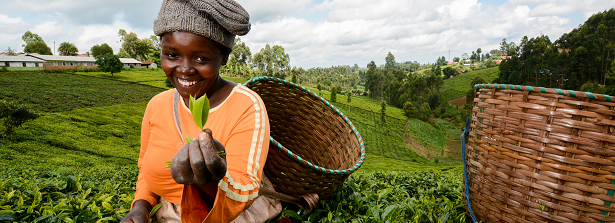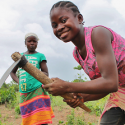Youth inclusiveness in agricultural transformation

Africa’s rapid population growth of youth is increasingly becoming a key priority on the development agenda. The “youth bulge” poses challenges on the demand for employment and for food security. Looking at the cases of Mali, Kenya and Ghana, this quick scan study provides some new insights into the challenges of the agricultural sector, food security and youth unemployment. It also looks at the extent to which current policies and programs are addressing these issues with the aim of stimulating constructive dialogue and debate.
Considerable policy and program framing and responses to the “problem” of young people and agriculture in Africa are still hampered by a lack of (context-specific) evidence and therefore often fall back on “common knowledge”, assumptions and narratives. This paper presents the results of a quick scan study to assess the available evidence in relation to African young people’s engagement with agriculture, and to analyze how this is reflected in current policy and programming in Ghana, Mali and Kenya. This paper focuses on the concept of “youth inclusiveness in agricultural transformation” with particular emphasis on employment and food security.
The paper is part of a series of work of AgriProFocus, the INCLUDE platform (INCLUDE) and the Food & Business Knowledge Platform (the F&BKP), who are combining their expertise on the topic of youth in order to more effectively address the existing knowledge gaps. This quick scan is a response to several questions that have been raised during conversations with the Dutch Ministry of Foreign Affairs and a group of non-governmental organizations (aiming to) work with youth more extensively. This paper is based on three country cases of Mali, Kenya and Ghana. The aim is to identify context specific approaches to stimulate constructive dialogue and debate with policymakers and practitioners. More specifically, this paper serves as input for the discussions at the Vijverberg session, a lunch meeting at the Dutch Ministry of Foreign Affairs, as well as for the Community of Practice.
Please follow this link to download the quick scan study (PDF).
Please follow this link to download the country case of Ghana (by Yannicke Goris)
Please follow this link to download the country case of Mali (by Alinta Geling)
Please follow this link to download the country case of Kenya (by Alphaxard Gitau & Yannicke Goris)







Well done and thanks for this piece of work. The importance of access to land as a factor is indeed super important to highlight and severely under-addressed. For me the report also raises questions about universal curricula in education systems designed by centralist ministries in capitals. Should post-primary curricula be the same in the city as in the rural areas or in the North versus the South in case they cover completely different agro-ecosystems? In-between the lines you also read a brain drain and a drain of entrepreneurial potential from rural areas, locking development in a negative spiral. And finally, there is not going to be change unless it is at scale and in a structural manner and including the private sector. That means much more coherent agricultural sector support programs. Also by collaborating development partners.